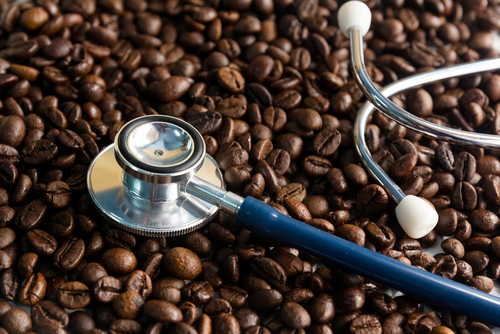While millions of people worldwide start their day with a cup of coffee to get that caffeine "hit," they may not realize that they are also promoting long-term health and longevity, which is good news for insurers.
Globally, an estimated 2.25 billion cups of coffee are consumed every day.1 Roughly 80% of Americans drink coffee with 60% of the total population drinking coffee daily.2
Research suggests coffee consumption may be one habit worth keeping. It has been associated with a reduced risk of all-cause mortality and cause-specific mortality from type 2 diabetes, Parkinson’s disease, liver disease, cardiovascular disease (CVD), and colorectal, liver, and renal cancers.3 Cancer and heart disease account for the largest percentage of causes of death in the United States at 37% and 20% respectively,2 so perhaps now is the time to get in that extra morning sip!
Coffee compounds
When people think about needing a cup of coffee, they often think about the need for caffeine, a natural stimulant known to combat fatigue and increase energy levels, but the benefits of coffee go far beyond the intake of caffeine. Coffee contains over 1000 bioactive compounds), many of which have antioxidant, anti-inflammatory, and antifibrotic properties. Examples include diterpenes such as cafestol and kahweol, potassium, niacin (vitamin B3), polyphenols such as chlorogenic acids (CGAs), and tocopherols (a form of vitamin E). Coffee is a major source of caffeine, which stimulates the central nervous system, leading to increased activity and physical exercise, one of the key factors in improved health and longevity.4
Coffee also contains other compounds such as trigonelline, melanoidins, and magnesium, which are known to have antioxidant properties.5 Trigonelline and magnesium can improve insulin sensitivity and glucose resistance.6 The levels of compounds in a cup of coffee vary by the type of coffee bean used, the roasting process, the brewing technique, and the size of the serving. For example, cafestol and kahweol are removed via filtration and therefore have a lower presence in filtered and instant coffee.7

Effects of compounds on human health
Different compounds in coffee influence biological activity in humans such as the microbiome composition, fecal output, inflammation, secretion of bile acids, and insulin sensitivity.7 Coffee may produce anticarcinogenic effects, including inhibition of the enzyme responsible for carcinogen activation.6
In 1991, the International Agency for Research on Cancer (IARC) classified coffee as ‘possibly carcinogenic to humans, but in 2016, following a review of over a thousand studies, it found that there was insufficient evidence to support this finding and it is now not classified as carcinogenic. In 2015 the US Dietary Guidelines Advisory Committee concluded that up to five 8-ounce cups/day can be part of a healthy diet.8 For healthy adults, the Food and Drug Administration (FDA) has cited 400 milligrams per day of caffeine as an amount not generally associated with dangerous or negative effects.9
Research suggests coffee consumption may be one habit worth keeping. It has been associated with a reduced risk of all-cause mortality and cause-specific mortality from type 2 diabetes, Parkinson’s disease, liver disease, cardiovascular disease (CVD), and colorectal, liver, and renal cancers."
Coffee intake is associated with short-term elevations in arterial pressure, insulin resistance, and low-density lipoprotein (LDL) but is not related to hypertension with long-term intake as it induces tolerance to its acute and short-term pressure effect.10 Caffeine is associated with a higher risk of some cardiovascular diseases but is also understood to have antioxidant capacity and limit the growth of human colon cancer cells.7 More than 95% of caffeine is metabolized by the enzyme cytochrome P450 1A2 but a polymorphism in the CYP1A2 gene affects caffeine metabolism. People with AC and CC genotypes are slow metabolizers, while AA genotypes are fast metabolizers.11
Coffee consumption can help prevent gallstone formation, improve lipid metabolism regulation, decrease liver enzymes and rates of liver steatosis, and reduce the risk of liver inflammation, fibrosis, and disease progression.12 It has been found to lower the risk of CVD by reducing inflammation and lowering blood sugar.13





